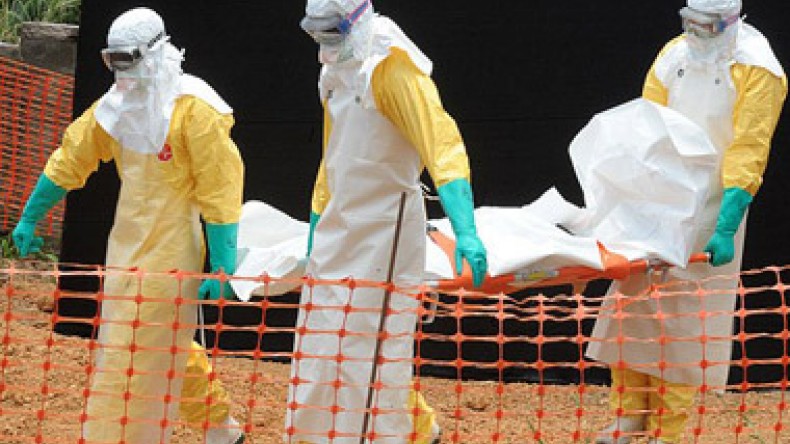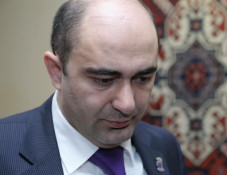
New Ebola treatments could be obsolete before they're even available, say scientists
New treatments for Ebola could be obsolete before they are available for use by patients, because of genetic mutations in the disease, scientists have warned, the Daily Mail reported.
Experimental drugs that are in development are designed to bind to and target pieces of the virus' genetic sequence - or proteins produced from that sequence.
But if the sequence changes, as a result of a 'genetic drift' - the natural evolution of the virus over time - the drugs may not work as effectively.
A new study has identified changes in the current strain of the disease, causing the outbreak in West Africa, that could interfere with experimental drugs.
Gustavo Palacios, director of the Center for Genome Sciences at the US Army Medical Research Institute of Infectious Diseases, said: 'We wanted to highlight an area where genomic drift, the natural process of evolution on this RNA virus genome, could affect the development of therapeutic countermeasures.
'Our work highlights the genetic changes that could affect these sequence-based drugs that were originally designed in the early 2000's based on virus strains from outbreaks in 1976 and 1995.'
The study tracked the genetic mutations that have occurred in the Ebola virus during the last four decades.
It was published in the the American Society for Microbiology's journal mBio.
It compared the entire genomic sequence of the current outbreak strain, called EBOV/Mak, with two other Ebola virus variants.
One was from an outbreak in Yambuku, Zaire in 1976 called EBOV/Yam-May, and one from an outbreak in Kikwit, Zaire in 1995 called EBOV/Kik-9510621.
It found changes, called single nucleotide polymorphisms, or SNPs, in more than 600 spots - or about three per cent of the genome.
Researchers then narrowed their search to only those mutations that changed the genetic sequences targeted by the various drugs.
Of those, they found 10 new mutations that might interfere with the actions of monoclonal antibody, siRNA (small-interfering RNA), or PMO (phosphorodiamidate morpholino oligomer) drugs currently being tested.
Viral geneticist US Army Captain Jeffrey Kugelman, said: 'The virus has not only changed since these therapies were designed, but it's continuing to change.
'Ebola researchers need to assess drug efficacy in a timely manner to make sure that valuable resources are not spent developing therapies that no longer work.
'The virus mutates rapidly and it's an ongoing concern.'
The first Ebola outbreak in West Africa began 13 months ago when a Guinean toddler became infected with the haemorrhagic fever.
It has spread within the region, killing more than 8,000 people, although countries like Nigeria, Mali and Senegal have succeeded in eradicating it and there are signs other affected countries are making progress.
Instead of preventing infection, the drugs are being designed to treat people already infected.
Two potential drugs are being tested at centres run by the charity Medicins Sans Frontiers - brincidofovir and favipiravir.
They work by interfering with the way the virus replicates inside a patient's cells.
Up to 140 patients started taking brincidofovir twice a week, over a two-week period last month.
Scientists at the University of Oxford will then assess survival rates, comparing them with those before the trial.
Favipiravir is a drug approved in Japan for treating flu.
It is now being tested in Gueckedou, Guinea. The trial is being led by the French National Institute of Health and Medical Research.
The first results are expected next month.
Another drug, ZMapp has been used to treat patients.
Two US aid workers and British nurse Will Pooley received the drug, but a Liberian doctor and Spanish priest died despite being treated with the drug.
Newsfeed
Videos






























